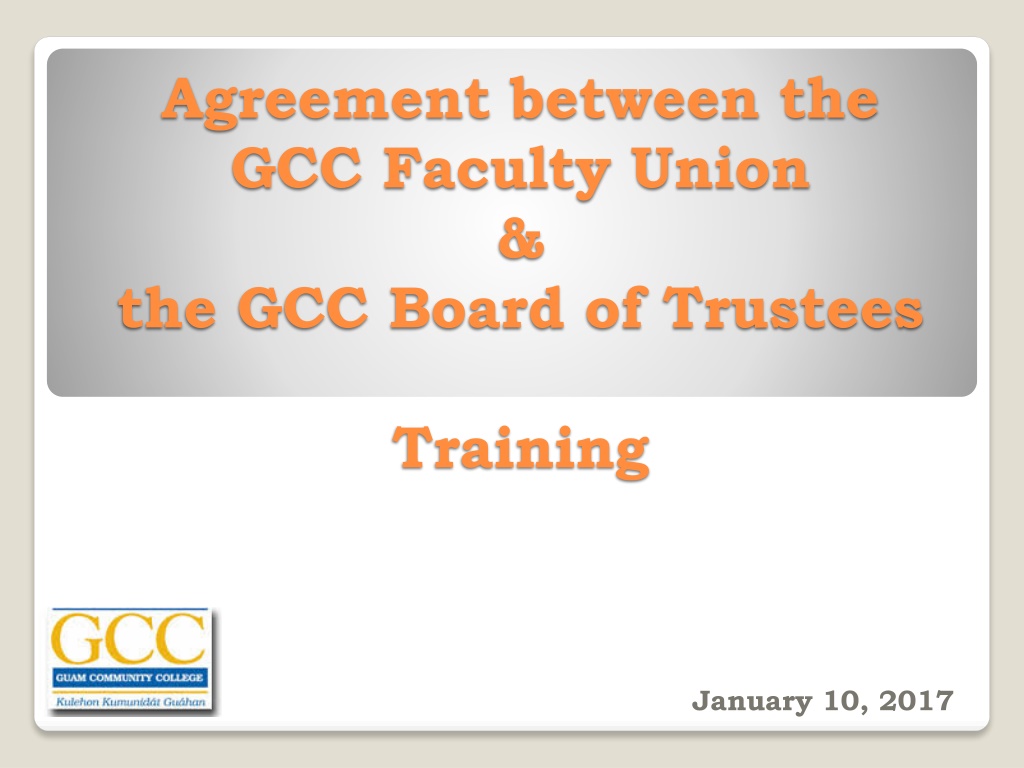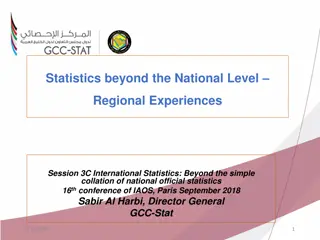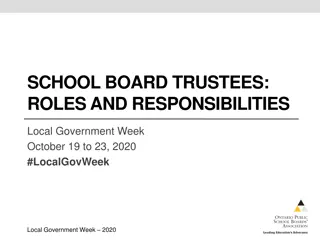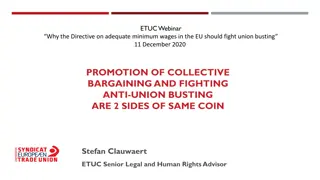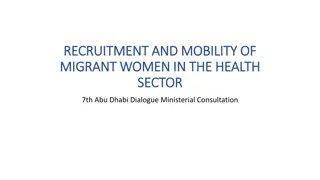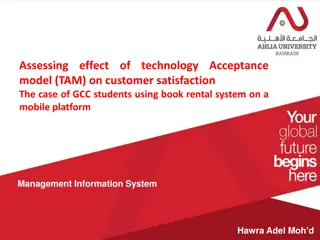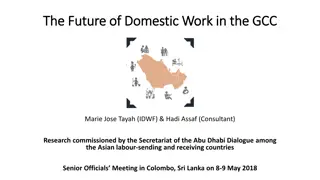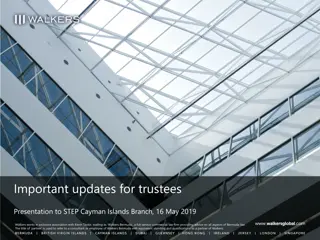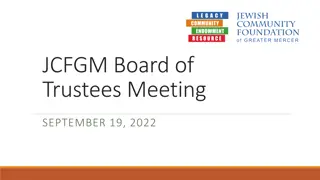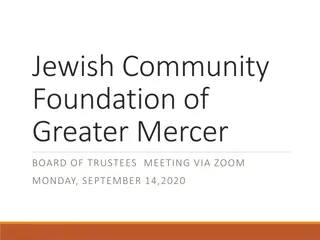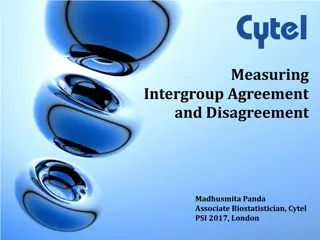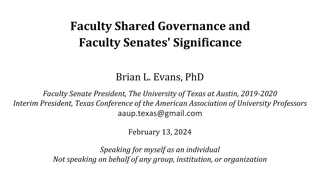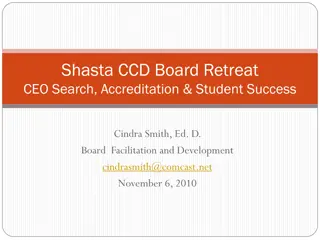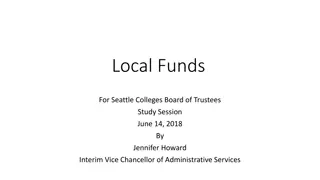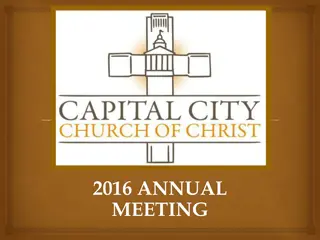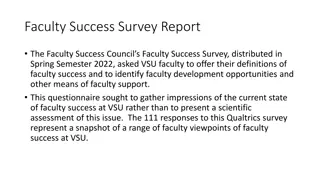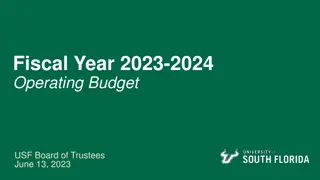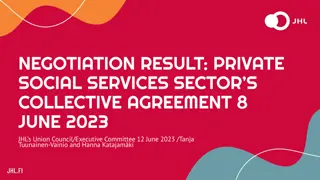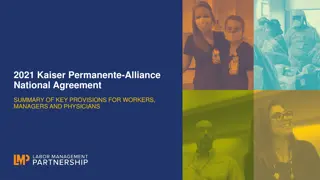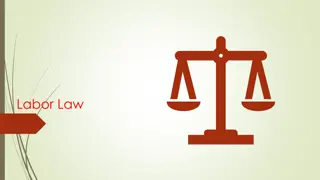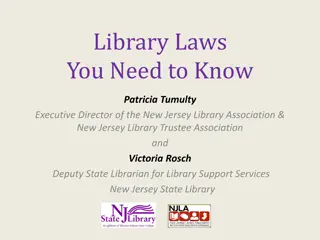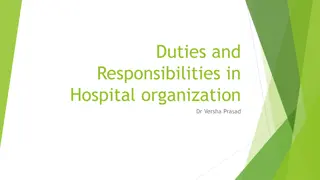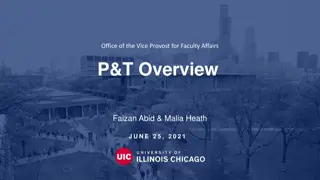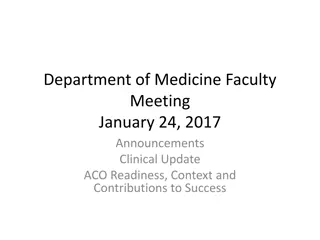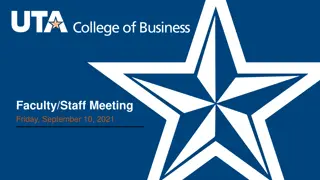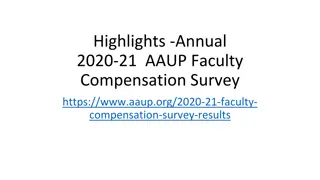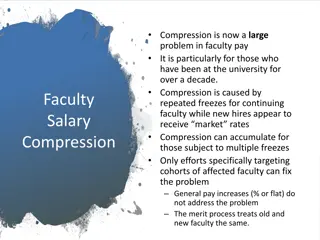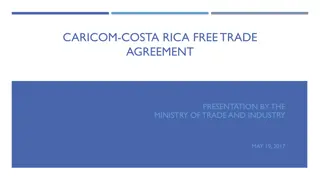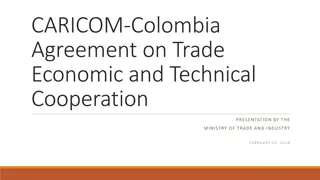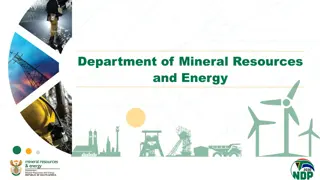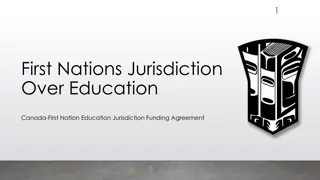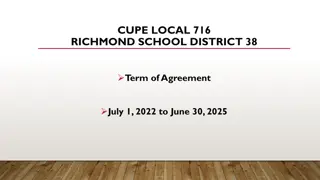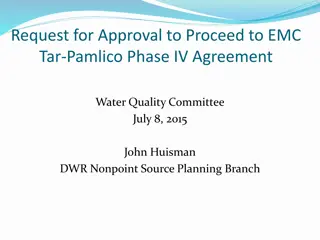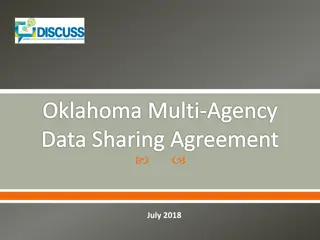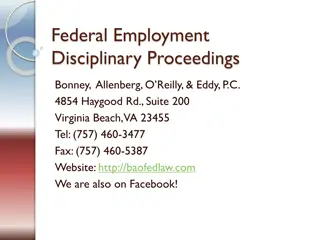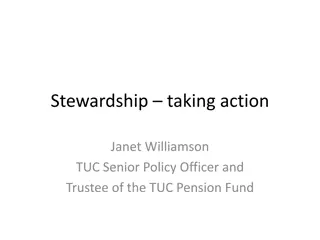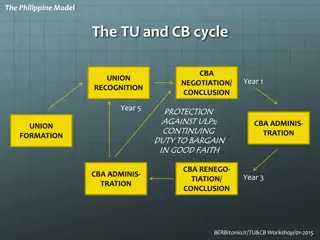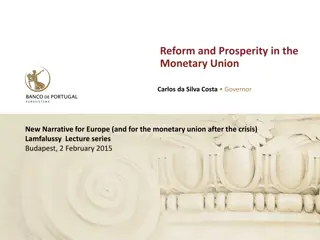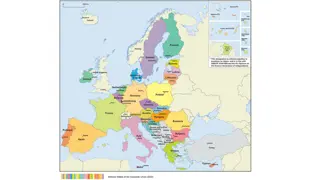GCC Faculty Union and Board of Trustees Agreement Summary
Contract negotiations between GCC Faculty Union and Board of Trustees involved organizing Contract Action Teams and emphasizing Interest-Based Bargaining for student success and institutional objectives. The process included finalizing the contract, addressing feedback, ratification by the union and adoption by the Board of Trustees. The contract focused on direct services for student success, faculty responsibilities, department chairs' roles, governance changes, and compensation based on deliverables.
Download Presentation

Please find below an Image/Link to download the presentation.
The content on the website is provided AS IS for your information and personal use only. It may not be sold, licensed, or shared on other websites without obtaining consent from the author. Download presentation by click this link. If you encounter any issues during the download, it is possible that the publisher has removed the file from their server.
E N D
Presentation Transcript
Agreement between the GCC Faculty Union & the GCC Board of Trustees Training January 10, 2017
Contract Action Teams were organized Fall 2015 - Contract was broken down into smaller segments so that it would be broken down into manageable pieces - Feedback and suggestions were provided to Negotiation Team Call for feedback from faculty 08/01/15 3/15/2016 Negotiation Committee Convened March 2016 - Reconvened in September 2016 - Completed negotiations Dec 2016 Interest Based Bargaining Emphasis on Student Success & Institutional Objectives Process
December 2016: - Finalize contract and address formatting and language - Finalize percentages January 2017: - Presentation to faculty - Send out for faculty feedback (1/13 20/2017) - Address faculty concerns - Ratification by Union (1/20/17) February 2017 - Adoption by BOT (2/3/17) February thru April 2017 - Faculty training (if needed) Effective AY 2017-2018 - AY 2022-2023 Process
Focused on Direct Services (Student Success) Separate provisions for respective faculty - (Secondary/Post-Secondary Instructional & Secondary/Post-Secondary Non-Instructional) Faculty Senate Recognition/Separation - Transitional Options - Impact on Committees (Local/Institution) - Compensation vs. Release 9 month faculty Department Meetings - (2x p/semester/one may be electronic) College Assemblies - limited/specific trainings; no PDRC type activities Major Changes
Department Chairs responsibilities / other - Administrative and Academic - Specific workload assignments using rank and permanent faculty service with GCC; concurs with Article XV.E.2.b.(1). - Secondary faculty worksite assignments and vacancies - DC two (2) consecutive term limit (with allowance for exceptions) - DC 10, 11, and 12 month requested options are separate from workload Department Chairs release tool (RAT/WST) Major Changes
Participatory Governance - Faculty Senate & College Governing Council Committee Changes - Local s (in Agreement)/Institution s (by contract) - Transition year (2017-2018) - Advancement-In-Rank (formerly Promotions) - PDRC - Compensation for Institutional Committees - Based on contract and deliverables - Negotiations Committee (formerly Job Specs/Evaluation) - convenes 2yrs prior to contract expiration to suggest changes for next contract Major Changes
Advancement in Rank Changes - New Deadlines: - Apr 1: Application for promotion - May 1: Receive Certificate of Eligibility - Oct 1: Submit Letter of Intent and other documents - Nov15: Submit complete portfolio to committee - Leadership requirement only for certain ranks - Opportunity to submit additional documents 3 duty days after interview Major Changes
Leave - Additional day added (4 personal days ttl) - No payment of unused leave Additional Articles - Secondary Non-Instructional - Distance Education - Year-round Education Workload - Clearer emphasis on instructional/non-instructional responsibilities, not committee work - Report in 2 days prior to start of semester - Last day is 3 duty days after last class - Alternative working assignments (have discussion with Dean) Major Changes
Job Specs - Revised to remove leadership component for certain ranks Evaluation - More flexible in terms of mutually agreed upon timelines - Flexible criteria for GenEd and Non-instructional Major Changes
Training on Faculty Evaluation Rubrics and Forms
4 ISMP Goals revised to 7 categories - 8thcategory for Exceptional Activities - must be approved by Evaluator, Dean and VPAA Evaluation Percentages based on Rank Committee Work as part of workload - no longer required; - options for PDRC and Advancement-In-Rank Content expertise - maintenance of licenses/certifications is no longer an option only new - Percent decreases in other areas (course management, institutional assessment, etc.) Major Changes
Non-Instructional Evaluation Rubric and Percentage Form Content expertise maintenance of licenses/certifications is no longer an option only new Proposed revisions were accepted under Direct Services and Improvement and Accountability NIIP deleted Major Changes
Communicate with your evaluator throughout the year if you are uncertain whether activities will be counted toward your evaluation. Professional development plans should be coordinated with your evaluator as early as possible. The deadline for submitting your Evaluation Plan is the last duty day of September. Reminders
You can revise your percentages until the last duty day of February each academic year. Activities can be used to satisfy more than one element or to achieve other than Satisfactory provided identifiably different - in some instances multiples are acceptable Reflective narrative Reminders
Easier to read More flexible contract Focused on core duties and responsibilities In-line with institutional objectives (ISMP) Emphasis on Student Success High quality of work-life for Faculty Results
